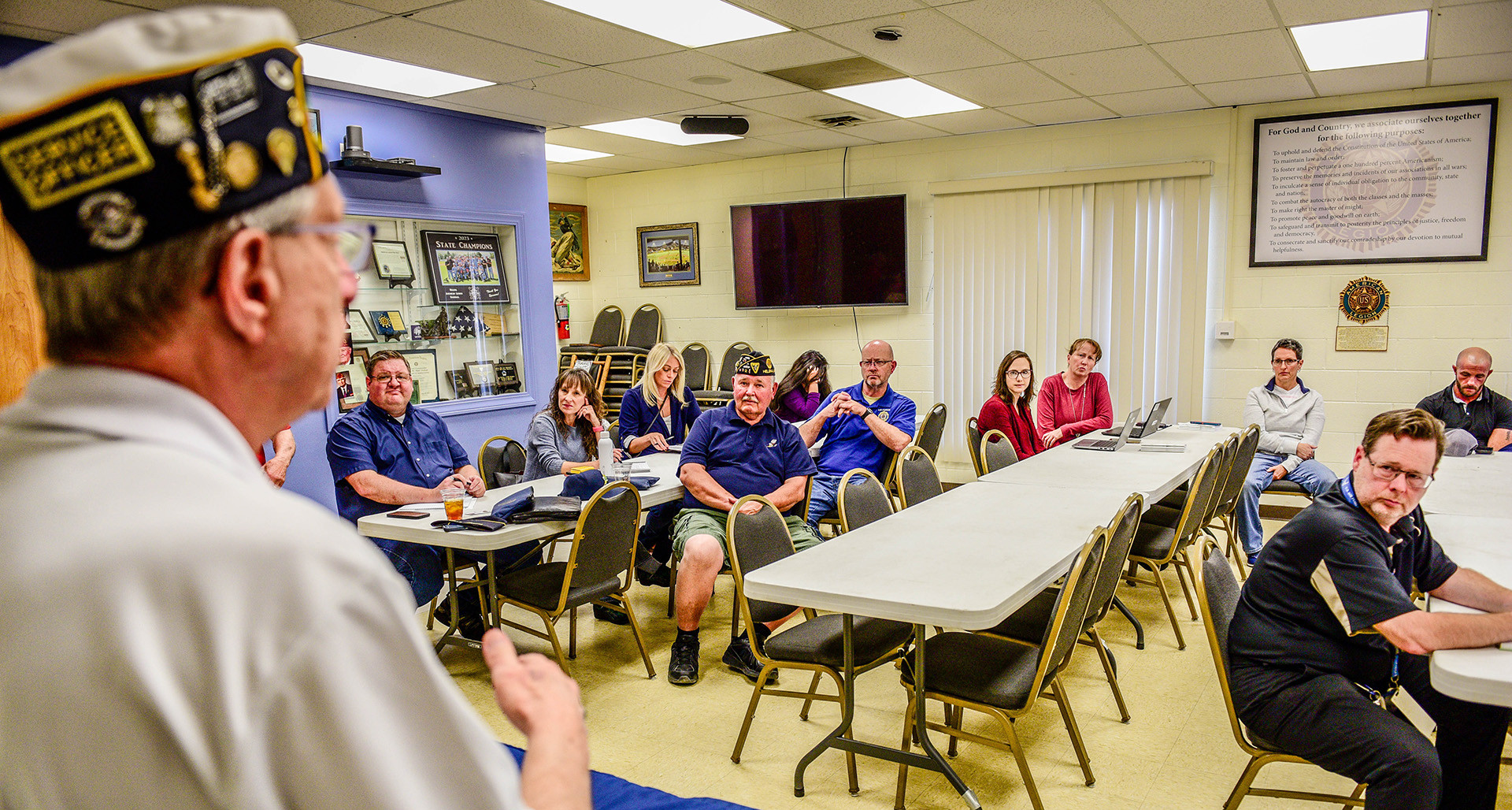
System Worth Saving team engages with rural veterans and VA staff in Montana, returning to pre-pandemic levels of visits.
This week’s System Worth Saving (SWS) visit to Helena, Mont., established a milestone, reaching the most such annual events since before the pandemic began.
American Legion Veterans Affairs & Rehabilitation Commission Vice Chairman Alan Cohen, who led the town hall meeting Sept. 23 at Post 2 in Helena, highlighted the importance of the visit and future ones.
“The pandemic brought the whole world to a screeching halt,” he said. “It didn’t mean then, and it doesn’t mean now, and it will not mean in the future, that we are not obligated to ensure that veterans receive the best health care they can get. We’ve breathed new life into System Worth Saving. The mission never stops.”
Cohen led the SWS team as it conducted the town hall, met with local VA staff and worked toward solutions to ensure that local veterans are receiving the best health care possible.
"It is our duty to ensure our veterans get the best medical care they deserve because they paid for it," he said at the town hall.
Among the issues raised at the town hall included the cost of community care, the implementation of electronic health records, recruiting and retention of staff, administrative tasks that take away from time with patients, and the sprawling geography of the state.
The Helena Medical Center is the only one in Montana, which is 630 miles wide. There are seven Community Based Outpatient Clinics (CBOCs) and a dozen outpatient clinics that provide services to the state's veterans living far from Helena.
Still, some veterans in Montana, like in Albuquerque where a SWS trip was held earlier this year, must travel three or four hours to their appointments. “So the question exists, ‘How do we improve that? They are building CBOCs, that's great. But will they be enough? No, so what do we do about that?" Cohen asked rhetorically.
Distance is not the only compounding factor. Consider: more than 50% of the state’s residents do not have high-speed Internet, making video visits nearly impossible for those in rural areas.
“The point of coming to a rural area like Helena, Montana, is just like a veteran who lives in a major metropolitan area, the veterans who live in the state of Montana deserve to receive the same quality of health care they earned,” Cohen said.
Post 2 Commander Ken Rosenbaum, an Army Vietnam veteran, appreciates the work of the medical staff at the Helena VA. “We have a fantastic VA, I get the care I need. I couldn’t ask for better on the care side.”
However, he has experienced issues with administrative work.
As an example, Rosenbaum encountered a veteran who had unsuccessfully tried to enroll in VA five times. The post commander accompanied the veteran on his next visit, only to have the same fate.
“Somebody changed the policy; you have to have a copy of your checkbook to register,” Rosenbaum said. “I understand that but somebody has interrupted the flow to enroll. I never heard of such a thing. Why didn’t somebody tell us? Communication is the key.”
They returned with the DD-214 and the checkbook, and were able to finally get into the system.
Rosenbaum appreciated having the SWS team visit Helena.
“It’s important to have System Worth Saving here because as a commander and as a Legionnaire we hear what’s happening all the time, the good and the bad,” he said. “And the questions — Why do they do this? How do I do that? To have them here, gathering information and presenting it outside here, that’s exciting.”
After these visits, American Legion staff and volunteers compile information from the town hall, the visits with VA staff and additional research, then prepare a report goes to Capitol Hill, the VA and will be publicly available on the Legion website.
SWS town hall visits also have been conducted this year in Phoenix, Albuquerque, N.M.; and Tampa, Fla.
Cohen sees that expanding in the coming year.
“After a long hiatus, we are getting some momentum back into the program,” he said. “The momentum has produced a lot of interest among veterans. When we conduct a town hall, the veterans are so appreciative. They appreciate having a voice in the health care they receive. We hope to carry this through in 2025, with even more town halls, even more visits to VA hospitals, around the country.”
- Veterans Healthcare
- System Worth Saving

